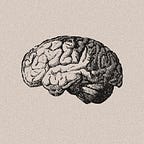When Everything Stays in Darkness
Sometimes we get into the kind of state when we think of many questions and answers. “How quickly will our project will reach the top?” “How quickly can we increase the quantity of people who are going to participate in an event?” “How can I join the volunteer team or art collective?” Projects, events — they are so cool, thirty people or so will join for sure. These thoughts will affect the productivity and release of projects.
For example, you think over the paperwork which teachers will focus on during exam. Mentally your eyes run through the words of context, you will think carefully about any detail of each chapter, references to authors of some fundamental researches. So, you imagine yourself on the stage in front of an audience, and slides are behind you. You even feel the sound of own voice…
Suddenly you find out that it is 3AM on the clock, and your eyes look on the ceiling. Yes, yes, you had been in this state before — dependency of ideas. Human spends so much time imagining how his project will be released. We idealize the embodiment of an idea. It can bring features of perfectionism. However, in the end, we can start thinking that our abilities aren’t good enough if we want to release a project. It is during this night that we reject our ideas.
We are studying in the academic territory of people who have high level of intelligence. It is necessary to try to accept our own lack of knowledge, or else neurotic syndromes will appear in that time. We should study at night, answer the questions correctly to the teacher, try to get enough sleep on a bus while it is in the traffic jam at Lenina street. You should do it if you want to match that level of intelligence, of course.
During this process our body gets harmed: you don’t have any appetite, hands and feet don’t move, eyes don’t open at midday. Time after time this state can take a break and you feel sudden anger or fear. Paul Bjerre remembers how he studied at medical faculty: he was a future psychiatrist who suffered permanent cramming, soulless classes, cynicism of teachers and students, and pre-exam fears. Everything becomes paralyzed. It seems that here we observe the first symptoms of melancholy, to be exact — acedia.
Acedia is a term which has no exact definition. It is impossible to use the word as a synonym to melancholy. However, they have similar features. In the collection of essays of 1941, Nobel Laureate in Physiology or Medicine, Ragnar Granit has defined acedia as a ‘disorder of perception’, noticing the connection with ‘burning out’.
Granit defines two forms of acedia:
Big form — a painful state when human concentrates on an exact subject of research. In this case to change to another subject possibly helps. For instance, to do other stuff, attempt to think about something else or avoid any kind of activity where you need to spend energy.
Small form — complex of inferiority. Human gets in an environment where their vanity can’t stand the success of others. In this case, what helps is to look towards science and focus on logic as your goal. Here, science isn’t an instrument to show your ambitions.
If a person doesn’t want to be in the end of the line of smart people, he isolates himself artificially. He does the same work again and again. He limits himself, he puts himself in spiritual austerity, and it is reminiscent of the life of a monk in a desert.
If you focus on studies too hard, if you won’t let yourself take a breath, then you can get an intellectual paralysis and inaction. However, humans can get into another state — full of hectic activity. So, what should you choose? Nothing! You should control your strength and wishes. Of course, it sounds difficult, but it is a little step you can make.
Acedia leads to an impossibility to invest in yourself. How can we develop when we feel distemper, fatigue, sadness and longing? You should observe these four nasty feelings. If you stop investing in yourself, it will be the same situation as like to live as an orphan. Hopelessness comes. Do you need it?
text Maria Filippovich
edited by Law Yi Wan, Reshma Durai
